Lithuanian cuisine
Overview
Lithuanian cuisine features the products suited to its cool and moist northern climate: barley, potatoes, rye, beets, greens, berries, and mushrooms are locally grown, and dairy products are one of its specialties. Lithuanians love good food and enjoy sharing it with their guests. The tradition of hospitality is very much alive in Lithuanian households.
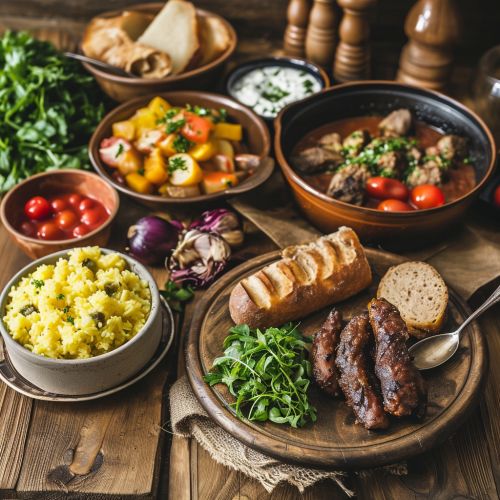
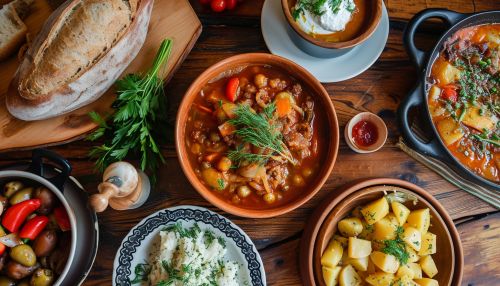
Historical influences
The cuisine of Lithuania has been influenced by the cuisines of surrounding countries and has similarities with Polish, German, Ukrainian, and to a lesser extent, Russian and Jewish cuisines. The influence of these countries is primarily due to the geopolitical history of Lithuania, which was under the rule of these nations at different periods.
Common ingredients
Lithuanian cuisine is generally mild. Potatoes and rye bread are the staple foods and are used more often than in other cuisines. Meat, mushrooms, dairy products and berries are also commonly used. Some of these products are exclusive to Lithuania, such as certain types of mushrooms, or are prepared in a distinctive Lithuanian way, such as smoked cheese and sausage.
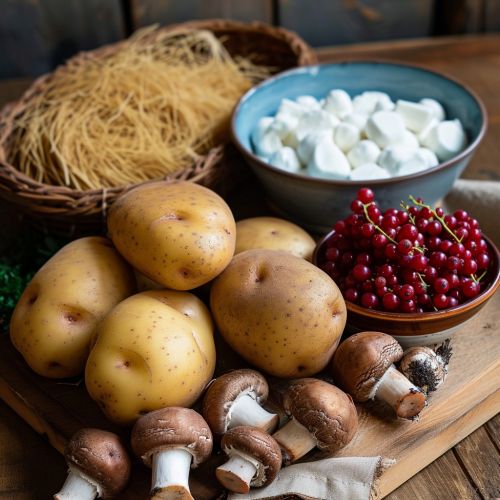

Traditional dishes
Lithuanian traditional dishes are quite simple but tasty. For example, "cepelinai" (named after Zeppelin airships) are a type of dumpling made from grated and riced potatoes and usually stuffed with minced meat. Perhaps the most exotic of all the dishes in Lithuanian cuisine is "šaltibarščiai" (cold borscht). This soup is bright pink and served on hot summer days. "Šaltibarščiai" is made from beets, buttermilk, hard-boiled eggs, and fresh dill.
Beverages
Lithuanians are famous for their love of beer (alus), a beverage that has been brewed in Lithuania since the Middle Ages. Lithuania has a well-developed beer culture, with a variety of styles and tastes. Mead (midus) is another traditional alcoholic beverage. For those preferring non-alcoholic drinks, 'gira' (a fermented bread drink similar to Russian kvass) is quite popular.
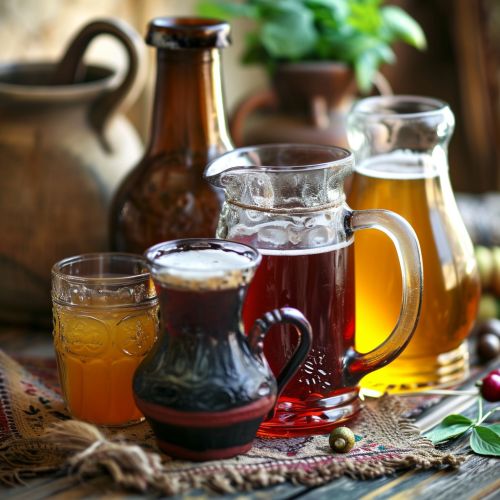
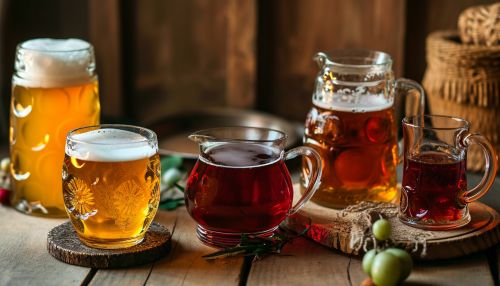
Modern Lithuanian cuisine
Modern Lithuanian cuisine is a mix of traditional ingredients and cooking styles with global influences. This has led to an exciting and vibrant food scene in Lithuania, particularly in the larger cities like Vilnius and Kaunas. Here, you can find everything from modern interpretations of traditional Lithuanian dishes to international cuisine.
